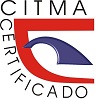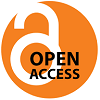The establishment of inter-institutional links for the training of students with talented potential
The establishment of inter-institutional links for the training of students with talented potential
Keywords:
training links, inter-institutional, training, talented potentialitiesAbstract
The article proposes the determination of theoretical-methodological precepts related to the conception of inter-institutional links for the training of students with talented potential, which takes into account the contextualization of common objectives, general and basic procedures, actions, spaces, processes and integrated functions, which transcend from an empirical and administrative conception to a scientific, pedagogically supported one, which in the hands of the management structures of the different institutions and levels of education, can contribute to the scope of training links in the process of attention to the development of students with talented potential. To conceive the proposal, requirements related to the internal coherence between its components and the determination of the sphere of educational reality were taken into account, for which theoretical and empirical methods are used. Theoretical and empirical methods are used, which support the assumption of the dialectical-critical method that implies a rational process through which the cognitive appropriation of reality is carried out. The logic of the method recognizes the synthesis of multiple incidents and temporalities constituting the same object. The methodology The method encourages valuing educational reality as a continuous and constantly changing process, which can be known through thought in the form of abstraction to be translated into practice that transforms. The authors aim to contribute to educational sciences from a theoretical point of view with the definition of training links, found from a process of contextualization and systematization of experiences with the development of students with talented potential.
Downloads
References
Águedo, D., y Cardona, K. (2016). Relaciones significativas: el docente cuidador. Clave Social 5(1), 58-70. Disponible en: http://hdl.handle.net/10567/1744
Álvarez Balandra, A. C. y Álvarez. V. (2014). Métodos en la investigación educativa. México: UPN, Horizontes Educativos. Disponible en https://bibliotecadigital.usam.edu.sv/11297.pdf
Álvarez de Zayas, C. (1998). Fundamentos teóricos de la dirección del proceso docente educativo en la Educación Superior Cubana. La Habana: MES. http://www.scienceopen.com/book.pdf
Calzadilla, O. (2020). Antecedentes históricos de la estimulación del talento y su contextualización en la escuela primaria cubana. Órbita Científica 110 (26), 1-12. Disponible en: http://revistas.ucpejv.edu.cu/index.php/rOrb/article/view/970
Campos, E., Castillo, A., Cárdenas, D y Curbelo, H.A. (2023). Atención diferenciada a estudiantes talentosos: una estrategia de intervención educacional. Universidad, conocimiento e innovación para el desarrollo sostenible. Volumen VIII Academia y Sociedad. http://edacundoc.ult.edu.cu/handle/123456789/163
Curbelo, H. A., Campos, E. Z. y Castillo, A. (2024). El perfeccionamiento de la actividad profesional en la educación para y de alumnos talentosos. Revista Conrado, 20 (101), 511-520. Disponible en https://conrado.ucf.edu.cu/index.php/conrado/article/view/4200
Curbelo, H. A., Campos, E.Z. y Bulgado, D. (2025). Clínicas sicosocial-formativas para el desarrollo de potencialidades talentosas. Medicentro, 29, e4357. Disponible en http://www.medicentro.sld.cu
Davidov, V. (1978). Tipos de generalización en la enseñanza. La Habana: Pueblo y Educación.
Delors, J. (1996). La educación encierra un tesoro. París: Santillana. Ediciones UNESCO, 95-108. Disponible en http://unesdoc.unesco.org
Educar para el cambio. (2016) Ideas para un nuevo modelo educativo y de crecimiento personal basado en el coaching. Disponible en: https://www.educarparaelcambio.com/2015/02/16
Fernández, C. (2021). Informe de resultado: Aproximación a una caracterización de jóvenes talentosos de preuniversitario y de su atención educativa, La Habana: Instituto Central de Ciencias Pedagógicas. Repositorio. http://www.iccp.rimed.cu/repositorio.pdf
Fernández, C. & García, L. (2023). Modelo cubano de atención al desarrollo del talento. Instituto Central de Ciencias Pedagógicas. https://online.fliphtm15.com/myssw/pxbi
Gordillo, M., Ruiz, M., Sánchez, S., y Calzado, Z. (2016). Clima afectivo en el aula: Vínculo emocional maestro-alumno. International Journal of Developmental and Educational Psychology. INFAD Revista de psicología 1(1), 195-202. Disponible en: https://doi.org/10.17060/ijodaep.2016.n1.v1.273
Hernández, L. y Massani, J. F. (2018). La atención educativa a estudiantes con talento académico en la Educación Básica Secundaria en Colombia. Universidad y Sociedad, Vol. 10, n. 3, 381-386. Disponible en: https://rus.ucf.edu.cu/index.php.rus
Horruitiner, P. (2006). La universidad cubana: el modelo de formación. La Habana, Cuba: Félix Varela. https://search.proquest.com/openview/1.pdf
Ministerio de Educación de Chile. (2019). Política Nacional de Convivencia Escolar. La convivencia la hacemos todos. Disponible en: http://convivenciaescolar.mineduc.cl/wp content/uploads/2019/04/Politica-Nacional-de-Convivencia-Escolar.pdf
Rajadell, N. (2001). Los procesos formativos en el aula: estrategias de enseñanza-aprendizaje. En Didáctica general para psicopedagogos. Madrid: Eds. de la UNED, 465-525. https://uiap.dgenp.unam.mx/antologías.pdf
Silvestre Oramas, M. (2003). Aprendizaje e inteligencia. En Compendio de Pedagogía. La Habana: Pueblo y Educación. http://www.ecurred.cu/Compendio_de_Pedagogia.pdf
Yan, L. y Torres, T, (2023) Particularidades del desarrollo del talento, en la política de la educación superior de China. Varona, revista Científico-Metodológica, no. 77 mayo-agosto. Disponible en: http://revistas.ucpejv.edu.cu/index.php/rVar/article/view/2044
Yepez, E., Hernández, O., Cevallos, J. y Yaselga, E. (2023). Detección y atención de estudiantes superdotados y con talento en el Ecuador, un análisis de la Literatura. PENTACIENCIAS 5 (2), 666-678. Disponible en: http://editorialalema.org/index.php/pentaciencias/article/view/633
Published
How to Cite
Issue
Section
License
Copyright (c) 2025 Hernadith Asley Curbelo Castillo, Eraida Zoraida Campos Maura , Diana Lucila Cárdenas Caballero

This work is licensed under a Creative Commons Attribution-NonCommercial 4.0 International License.
Horizonte Pedagógico es una revista Open Access, lo que quiere decir que todo su contenido es accesible libremente sin cargo para el lector o su institución. Los usuarios están autorizados a leer, descargar, copiar, distribuir, imprimir, buscar o enlazar a los textos completos de los artículos de esta revista sin permiso previo del editor o del autor, de acuerdo con la definición BOAI de open access. Los autores que publican en esta revista están de acuerdo con los siguientes términos: Los autores conservarán los “Derechos de autor” y garantizan a la revista el derecho de ser la primera publicación del trabajo. La revista se encuentra protegida bajo una licencia internacional de Creative Commons Attribution License Atribución 4.0 Internacional (CC BY NC 4.0), que permite a otros compartir (copiar y redistribuir el material en cualquier medio o formato) y adaptar (remezclar, transformar y construir a partir del material), para cualquier propósito, incluso comercialmente. Bajo las siguientes condiciones: atribución (usted debe dar crédito de manera adecuada, brindar un enlace a la licencia, e indicar si se han realizado cambios y no comercial — Usted no puede hacer uso del material con propósitos comerciales. Puede hacerlo en cualquier forma razonable, pero no de forma tal que sugiera que usted o su uso tienen el apoyo de la revista o el autor de la publicación.






















